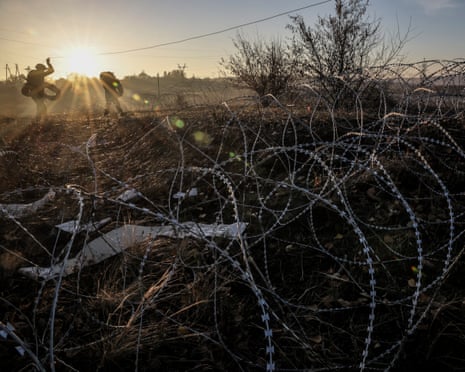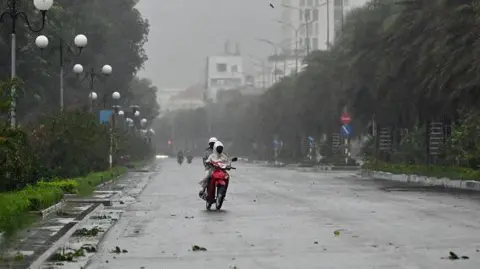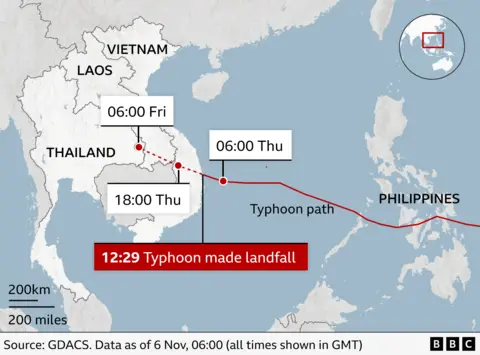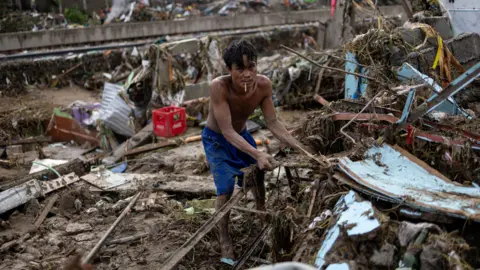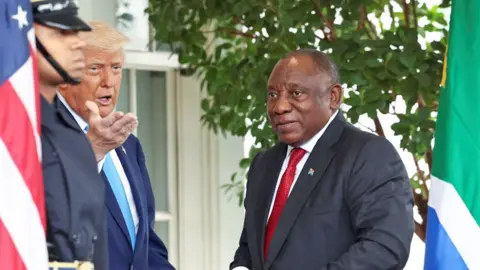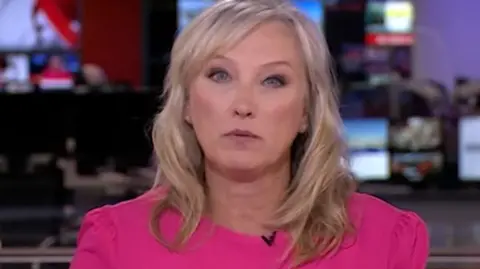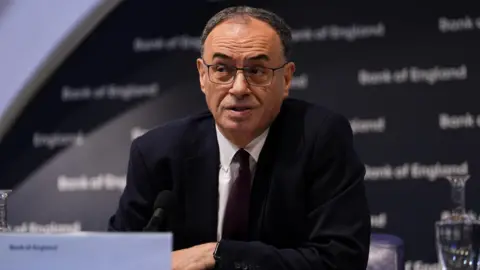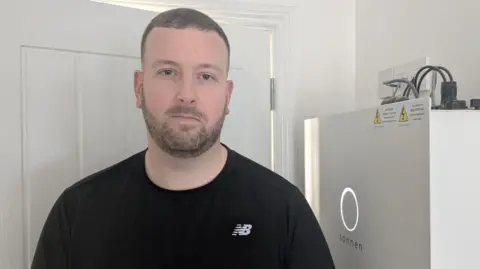South Africa is launching an investigation into how 17 of its citizens ended up in the war-torn region of Donbas in eastern Ukraine.
The office of the South African president, Cyril Ramaphosa, said it had received distress calls from 17 men, aged between 20 and 39, who had been “lured to join mercenary forces involved in the Ukraine-Russia war under the pretext of lucrative employment contracts” and were now requesting assistance to return home.
The discovery has drawn attention to the role that foreign fighters are playing in the war as it drags towards its fourth anniversary with a mounting death toll on both sides.
It is not clear which side the men were fighting for, although their presence in Donbas, a region of Ukraine that is largely occupied by Russia, as well as the reference to them having been lured by the promise of financial reward strongly suggests they were enlisted by Russia.
Both sides have enlisted foreign fighters, though Russia has done so on a far larger scale, often relying on coercion and deception.
There have been numerous reports of Russian authorities and murky intermediaries forcing or deceiving African nationals, as well as recruits from Nepal, Syria, and Cuba, into fighting in Ukraine, often after luring them with false promises of lucrative non-military jobs advertised on social media.
In September, the Ukrainian military released a video of a captured Kenyan fighter who said he had been tricked into fighting for Russia.
Last month, the Center for Countering Disinformation, an agency of Ukraine’s national security and defence council, said Russia was launching a mercenary recruitment campaign in south-east Asia, Africa and Latin America.
Russia is also supported by the presence of thousands of North Korean soldiers sent by Pyongyang to aid Moscow’s war effort, the only state-backed foreign forces to have joined the war. Hundreds of North Koreans are estimated to have died in the fighting.
Ukraine has encouraged foreign nationals to enlist in its armed forces, with many volunteers from Europe and the US joining units such as the International Legion. More recently, Ukraine has recruited about 2,000 Colombian nationals as contract soldiers to help fill manpower gaps nearly four years into the war.
Franz-Stefan Gady, a military analyst, said: “The role of foreign fighters on both the Ukrainian and Russian side has somewhat increased over the last two years.”
For Ukraine, even an additional influx of foreign fighters would not be able to address its manpower shortage, Gady said, which “remains the biggest impediment in the Ukrainian war effort”.
Jethro Norman, a senior researcher at the Danish Institute for International Studies, said the numbers of foreign fighters were “marginal on both sides”. “But symbolically, they punch far above their weight, especially in propaganda and recruitment narratives,” Norman said.
“Early in the war, foreign volunteers carried significant propaganda value, signalling international solidarity with Ukraine. Numbers appear to have declined since, but the idea of foreign fighters continues to feature prominently in social media, recruitment videos and Russian disinformation.”
Chinese social media is awash with recruitment videos for the Russian army, with influencers touting the glamour, riches and masculine kudos that supposedly come with joining the war. Beijing says it does not support its citizens getting involved in the conflict, but it allows the videos to circulate on China’s otherwise tightly controlled internet.
Ukraine denies it recruits mercenaries but says it allows foreign volunteers to become part of its armed forces.

